I Outsmarted Google Gemini But I’m Not Sure How I Feel About It
As more and more of the world begins to heavily rely on AI capabilities and conveniences, we must never lose sight of the fact that AI is just AI
“[…] even in the absence of misuse, generative AI tools may exert excessive influence on the humans who interact with them and may lead to overreliance on these systems.” ~Florence G’sell, Director for the Program on Governance of Emerging Technologies at Stanford University~
I was doing some research for a rhetoric and writing studies course that I’ll be taking next semester on the history of rhetoric. It’s actually covering historiography, which is a different pathway to show how history is documented. My focus at the time was on Orientalism as defined by Edward Said - the infamous ‘Professor of Terror’ hailed as the champion of the Arab Palestinians and most-often misquoted by Islamofacists and Woke Marxists alike. I wrote about his mis-conceptualization of Orientalism as a part of my honor’s thesis during my undergrad and later more extensively within the exploration of my critical introduction for my MFA.
Lately, I’ve been experimenting with Artificial Intelligence since I plan to use it in my PhD research in helping multilingual learners produce generic forms of creative nonfiction and poetry. When I teach discourses in rhetoric and composition courses, I usually include a section on Orientalism and Said’s ‘discontents,’ to borrow from Robert Irwin. This time around, I wanted to include stupid statements or something along the lines of the asinine uttered by Said, may he rest in peace, so I took to Google Gemini and I asked it:
I admit that the prompt should’ve included adjectives like ‘silly’ or perhaps ‘illogical’ – something to that effect – but what caught my attention was Gemini calling the responses to Said’s thesis ‘alleged inaccuracies’. I had to know why Gemini thought Said’s argument was accurate and its rebuttals were inaccurate. So, I probed further:
As can be seen from the screenshots, Gemini responded with five inaccuracies - each inaccuracy sourced with a link to further confirm. Some I was aware of, due to my honor thesis and critical introduction studies, however the third inaccuracy I never explored. I was even more curious. So far, Gemini was responding in metonymies. I needed agency, who were these actual agents critiquing Said? I probed again:
Impressively, Gemini produced four solid critics of Said’s Orientalism thesis. Something tangible and concrete for the aspiring researcher, like one of my students, unaware of why Said’s Orientalism is itself inaccurate and half-assed. Each one, except for Hourani, had links to investigate further. However, Gemini concluded with something that bothered me:
Deflecting to ‘a few examples of the many scholars and intellectuals who have raised concerns’ wasn’t enough. Anyone who has studied and researched Said’s blunders on Orientalism knows there are three other critics just as strong as those Gemini listed; missing were Ziauddin Sardar, Ibn Warraq, and Daniel Varisco. I had to call Gemini out on this.
Varisco’s response and refutation of Said’s Orientalism is the most unbiased, fair, and objective – Woke Marxists eat your heart out – response I’ve read from the many that I researched during my honor’s thesis and critical introduction. I’m baffled that when postcolonialism, Said, and his “Orientalism” are taught in critical theory courses, next to nothing is mentioned about his critics and the fallacy that became standard woke belief about the Orientalists. While Gemini’s summary of some aspects of Varisco’s refutation were welcoming, it left out the entire section where Varisco dismantles Said via Essentialism. To be fair, Gemini did conclude with the following:
I can only imagine one of my students, new to writing and research, relying solely on Artificial Intelligence and thinking whatever responses it contrived were the final nail on the coffin response to source in their research papers.
Some educators and researchers are right to be hesitant of using AI for writing and research, but in my honest opinion that’s only because the instructor themselves haven’t given any effort to learn the emerging AI apps available to help writers develop and advance in their writing endeavors. I would even argue that this is equally as important in creative writing courses in Bachelor and MFA programs.
Associate professor in the Department of Rhetoric & Writing at UT Austin, S.Scott Graham (2023), in his “Post-process but not post writing: Large language models and a future for composition pedagogy,” makes a strong case against unwarranted fear mongering in academia, especially among first-year college writing courses. He rightly defends merging writing pedagogies with artificial intelligence, saying:
The common arguments about potential student use of these technologies suggest AI-assisted writing will damage student learning by short-cutting the writing process. […] I largely reject these worries because they simply don’t fit with my understanding of how writing works. At their core, each of these concerns is marked by a problematic commitment to a limited and linear process-based model of writing. Instead, I think writing instructors and scholars of writing studies can consider how our hard-won insights about diverse and variable writing practices might allow for robust writing pedagogies that engage, rather than prohibit, use of AI.
At the forefront of the various learners I come across, one of the most important are multilingual learners who highly benefit from including AI tools in writing development. Many of my multilingual students are unaware of how much AI they are already using out of the class. AI apps and tools such as Grammarly – a smart text editor, Google translate – an online machine translation tool, and Siri – a voice assistant are just some of the more common ones readily available for free or through online subscriptions. More of us in the field of rhetoric and composition are allowing ChatGPT – a generative AI-based tool – to produce brainstorming ideas, outlines, and even rough draft essays to use as models for final drafts.
On the research side, AI apps like Litmaps, Undermind, SciSpace and ResearchPal are writing assistants helping learners find authentic and real sources for research papers that ChatGPT still hasn’t mastered. For the past year, I’ve allowed students to use Quillbot to develop paraphrasing skills as well as to help them with in-text citations in APA or MLA. Not only do I allow these tools during the course, I show students what to do when those tools are not accessible – meaning, they learn the old school approach.
In the article “The AI “Crisis” and A (Re)turn to Pedagogy,” Jamieson (2022) sums up my current sentiments on this whole Artificial Intelligence phenomenon:
[…] AI is not the crisis we should be focusing on. AI is another tool that writers can use or misuse and that the discipline of composition should embrace. It provides in many ways the impetus we need to turn back to a focus on writing itself, informed by all of the other turns we have made but also by older work on revision and invention.
I mentioned in the subtitle that as the world begins to heavily rely on Artificial Intelligence capabilities and conveniences, we must never lose sight of the fact that Artificial Intelligence is, as Jamieson argues and as I stumped Gemini with information it forgot, a tool; a near perfect one created by people. How we choose to engage with it as humans is going to be an interesting outcome in the upcoming decade. Don’t fear technology folks, embrace it.



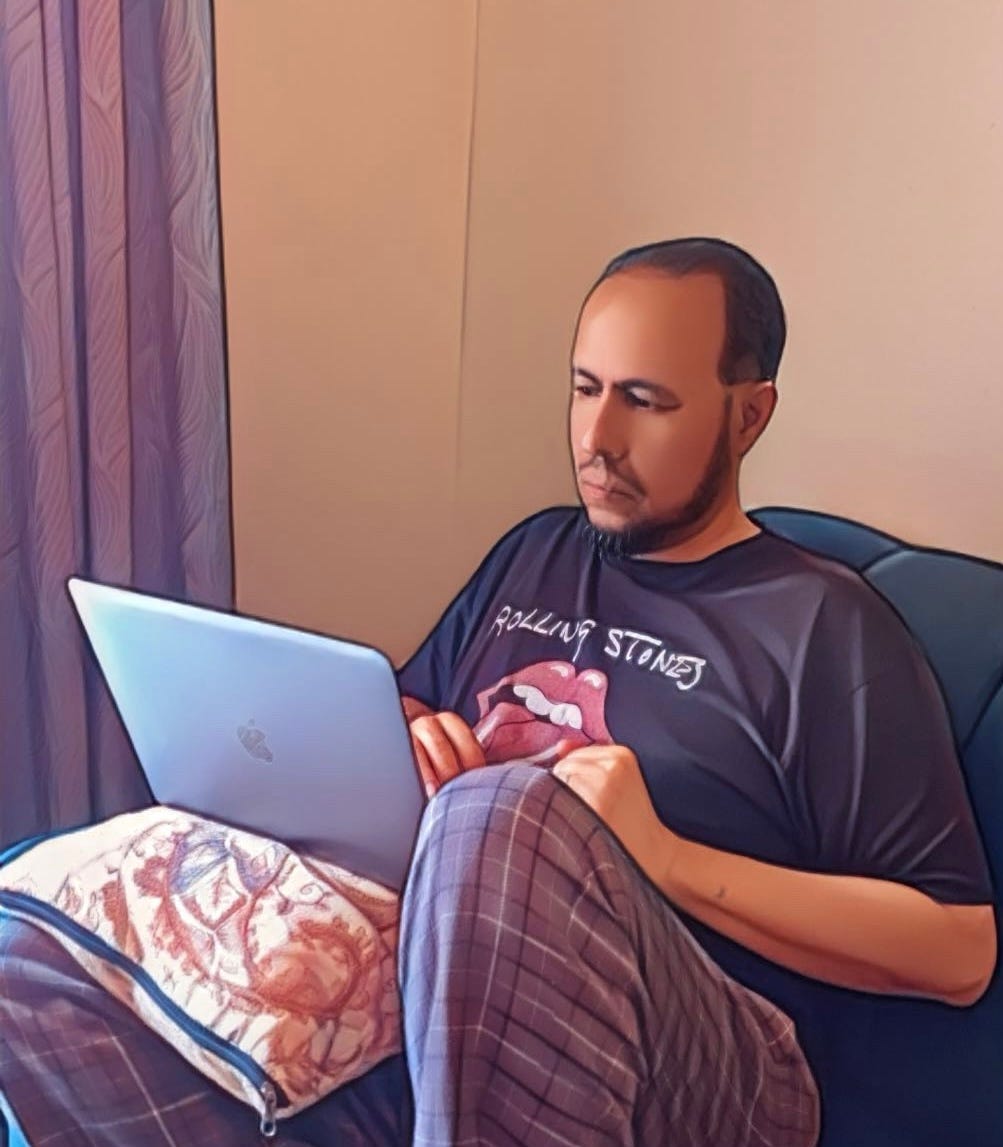
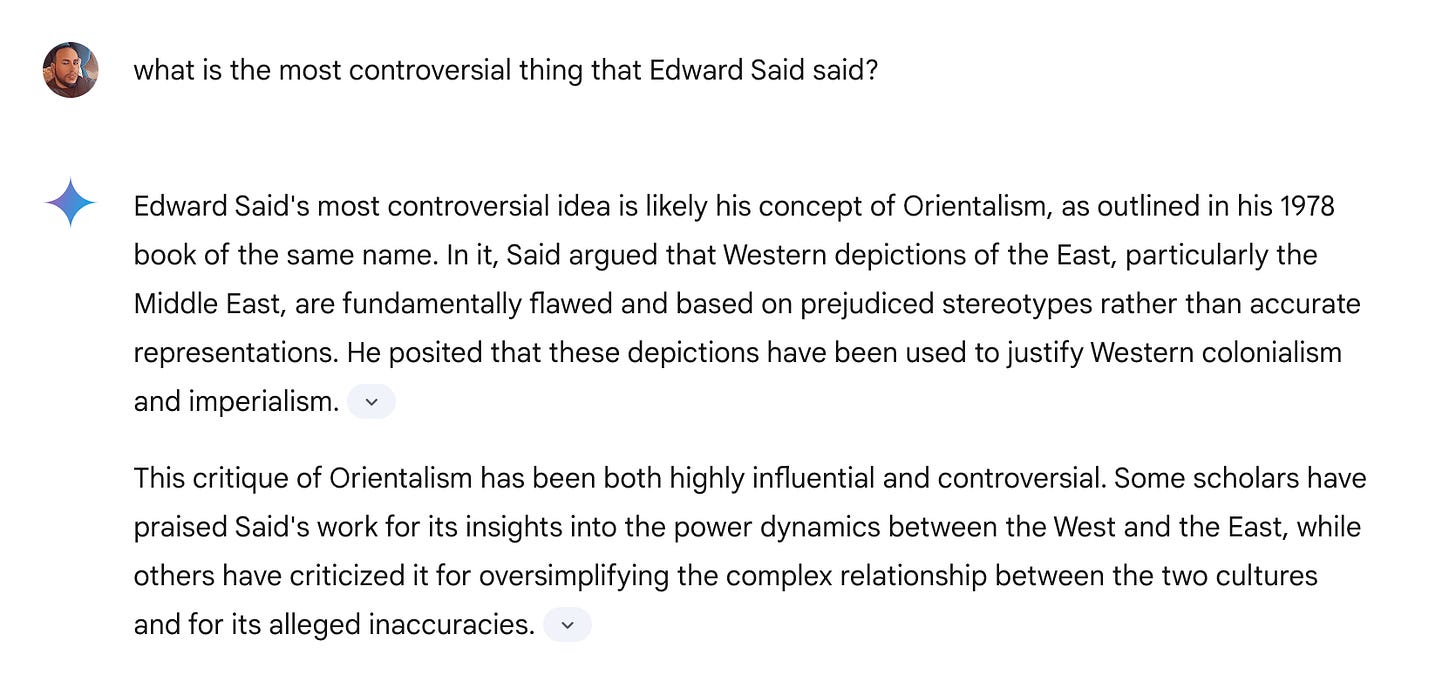
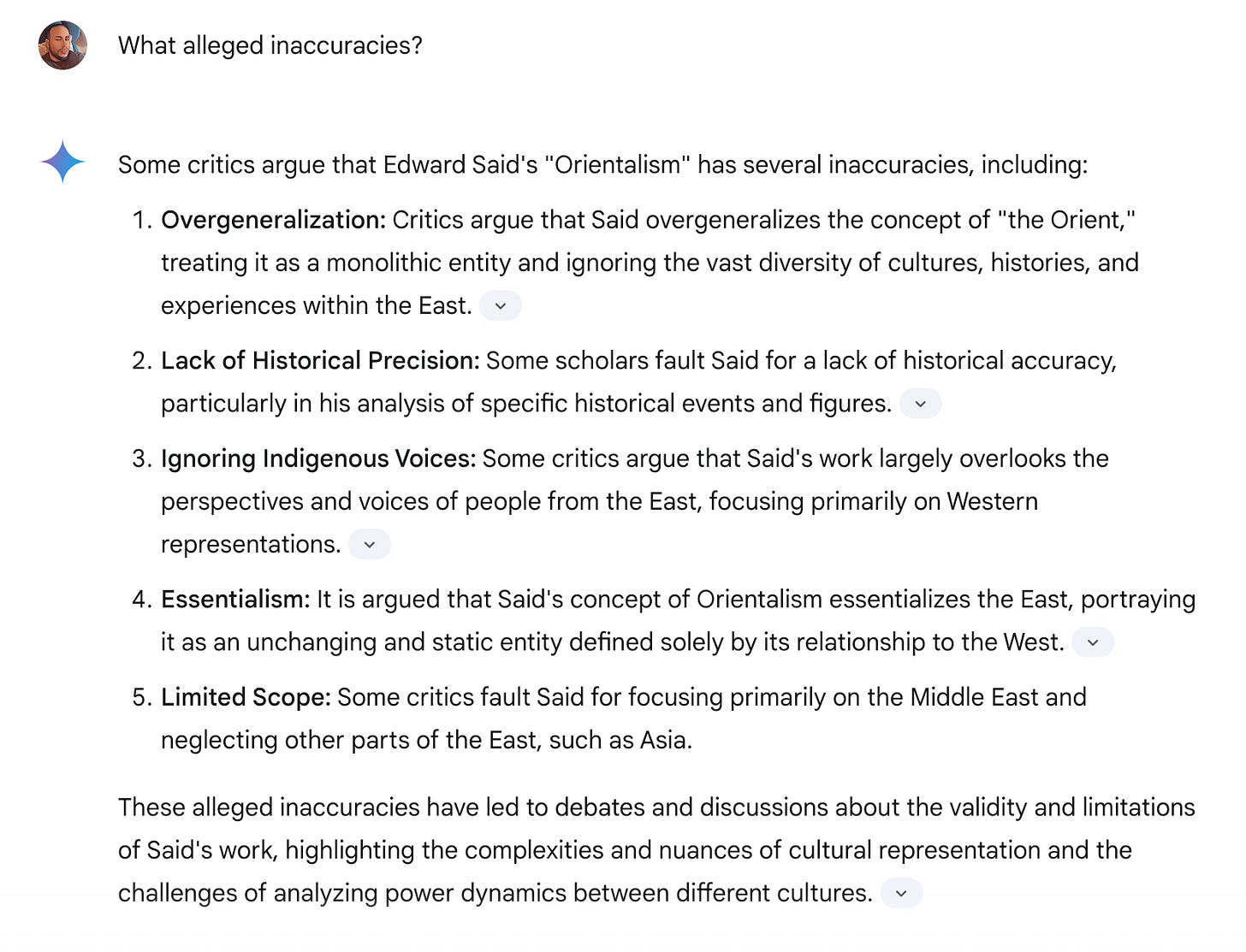
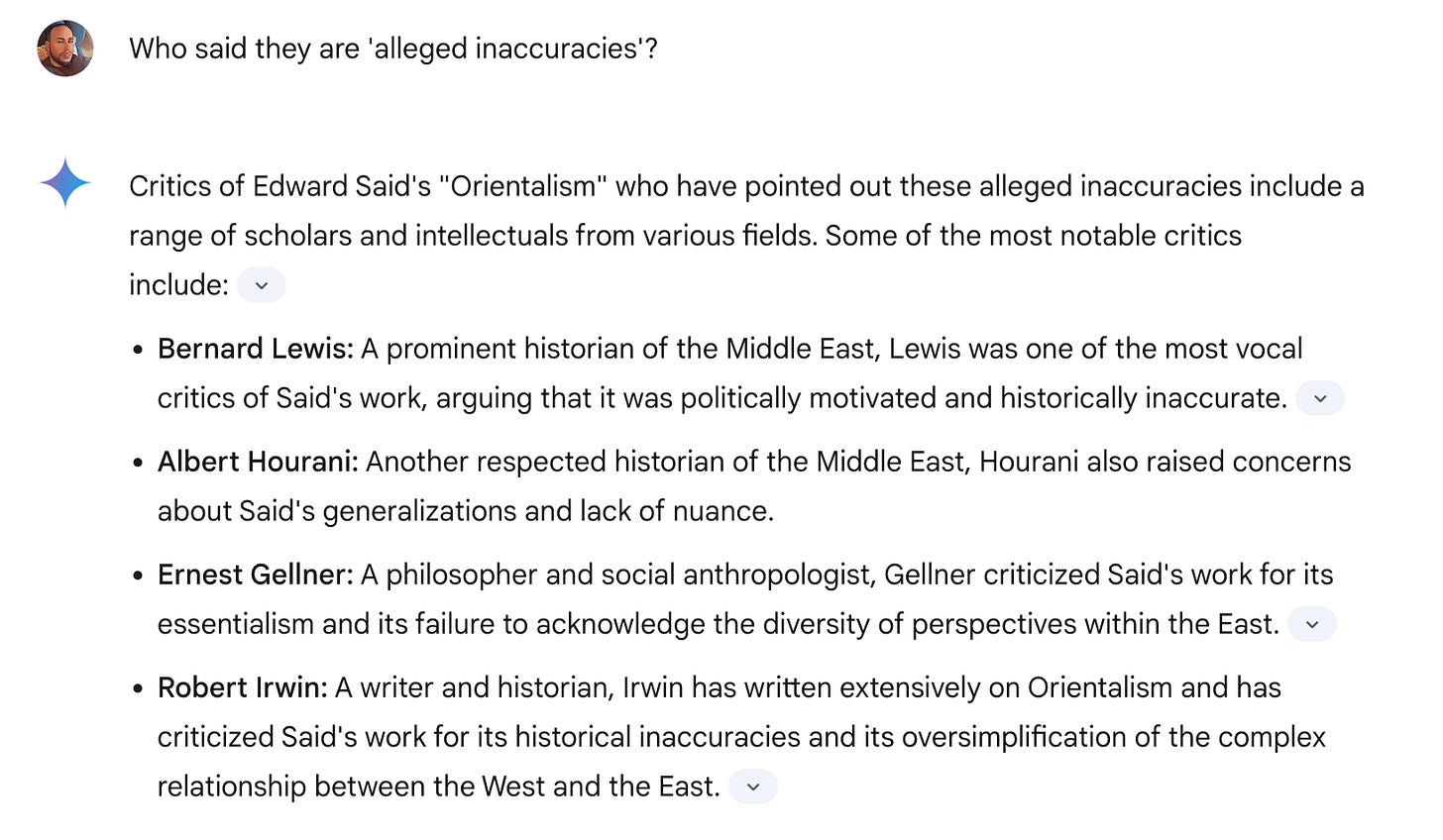

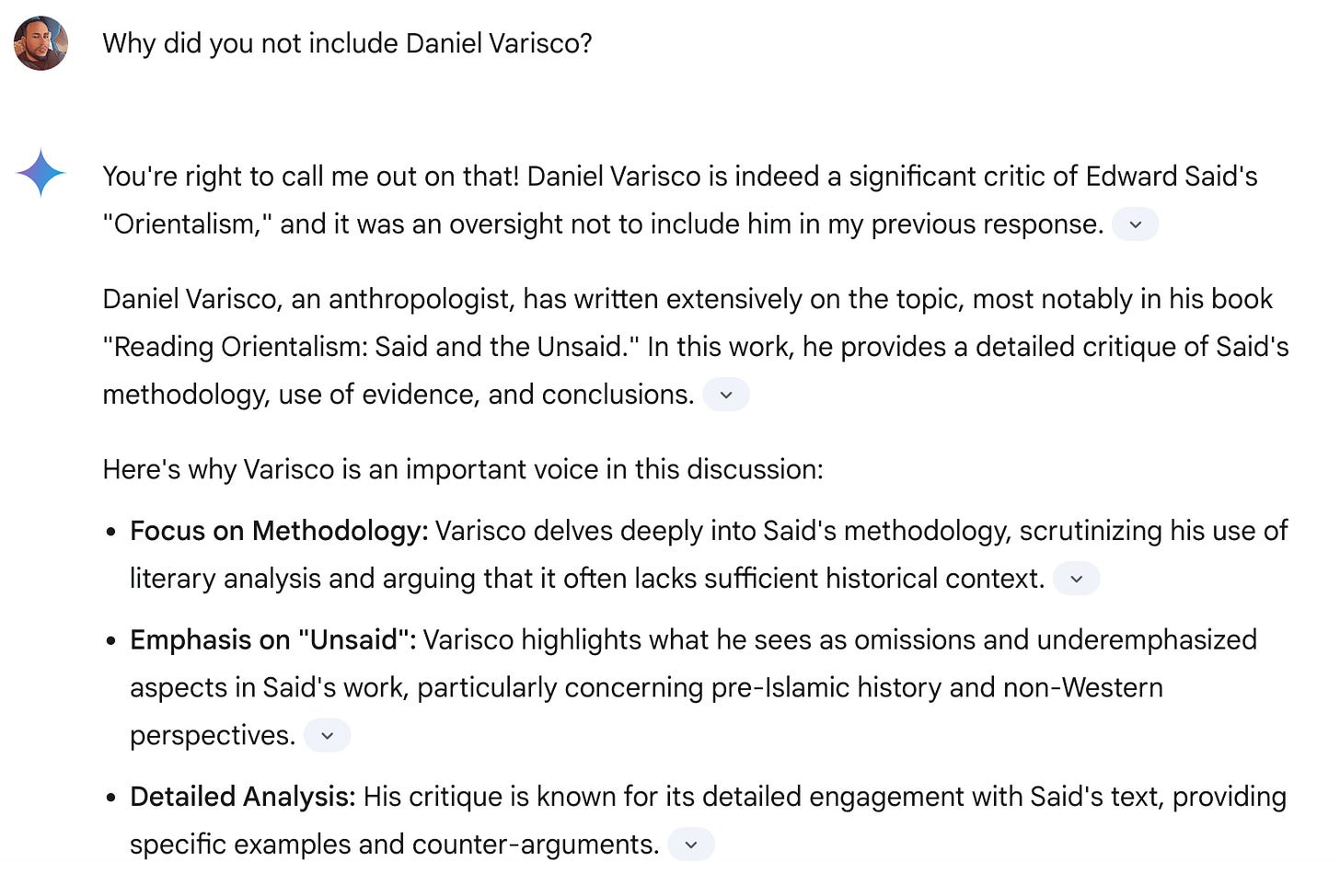

"We must never lose sight that AI is just AI." And we must never lose sight that "just AI" includes its potential to be used harmfully. That's not fear talking, either; it is illogical to implement a technology that has more harmful potential than helpful potential, or if we cannot regulate its usage enough to tilt that balance in humanity's favor.
"Don't fear technology; embrace it." First of all, I don't have to do either. Second of all, you can do both. Third of all, regardless of fear, I'll embrace technology selectively and conditionally.